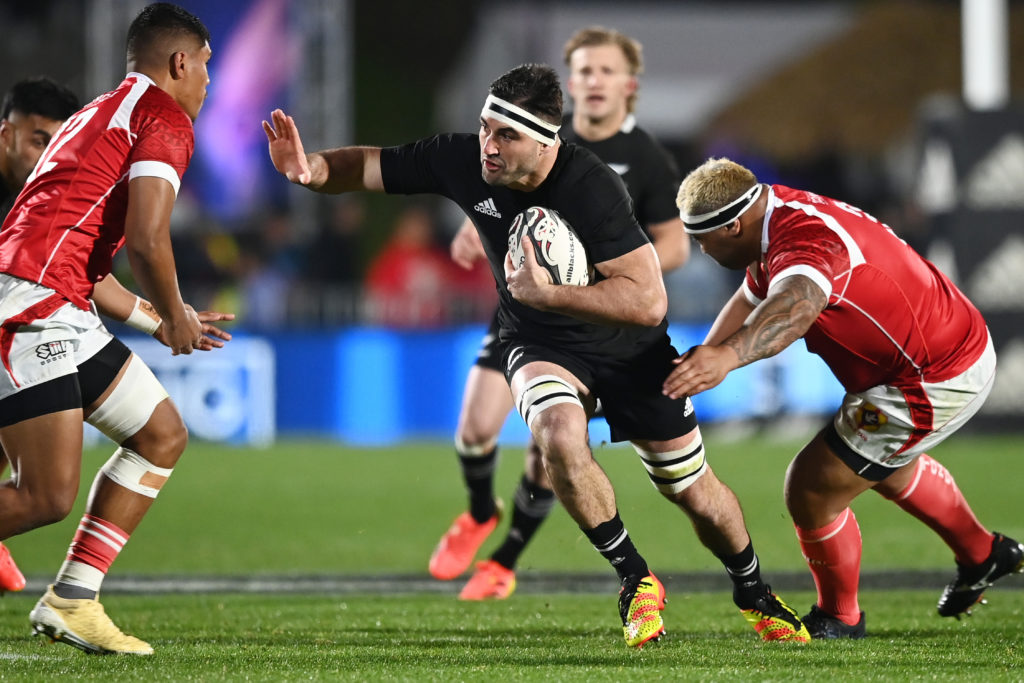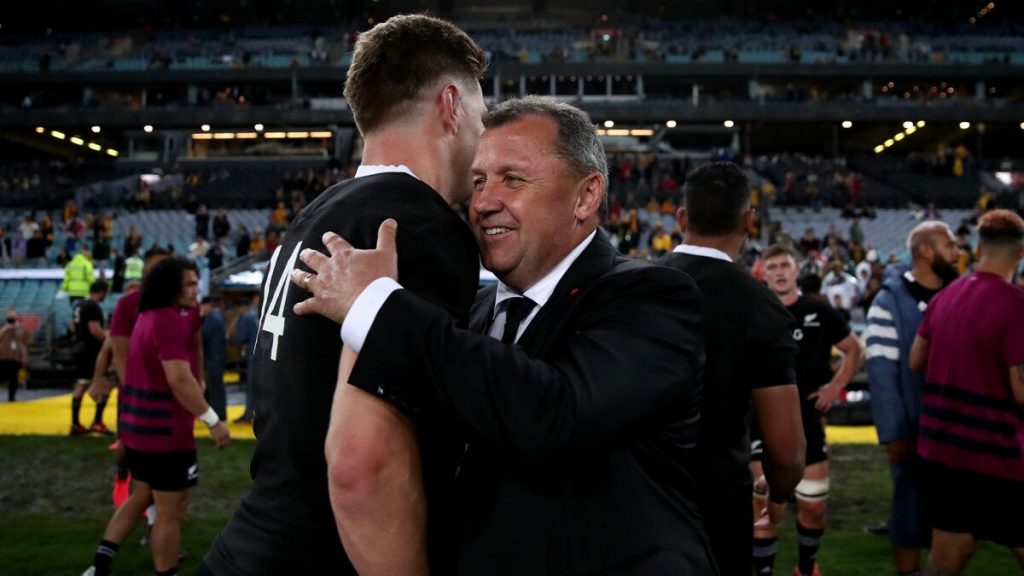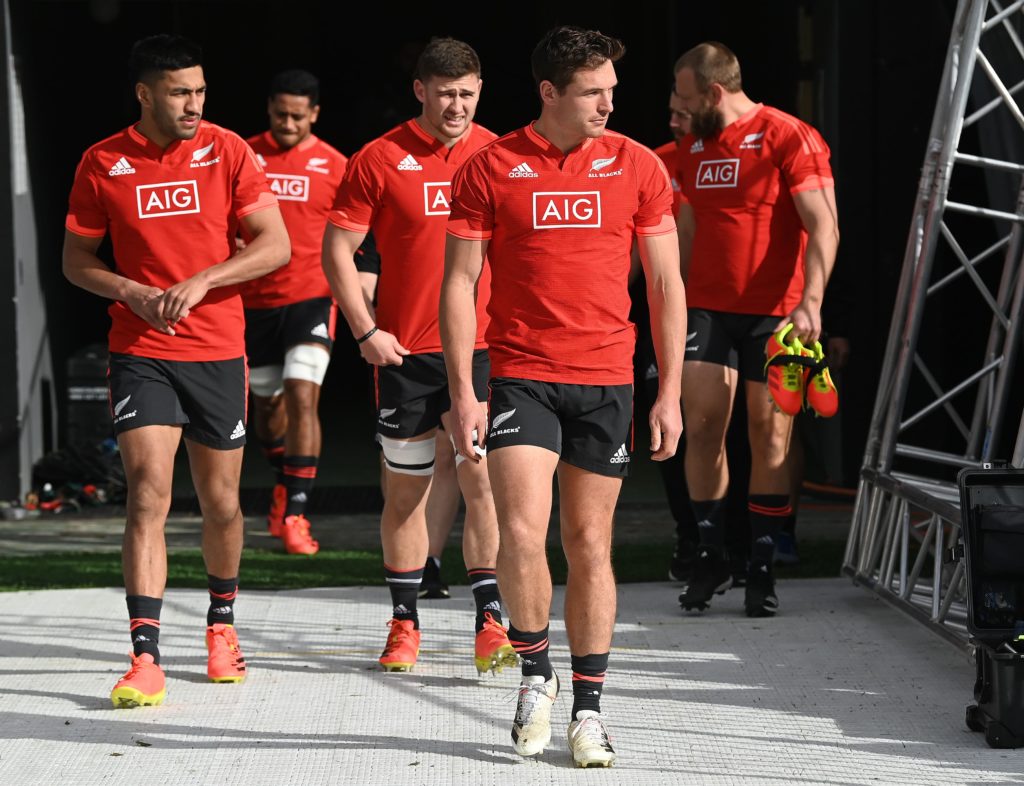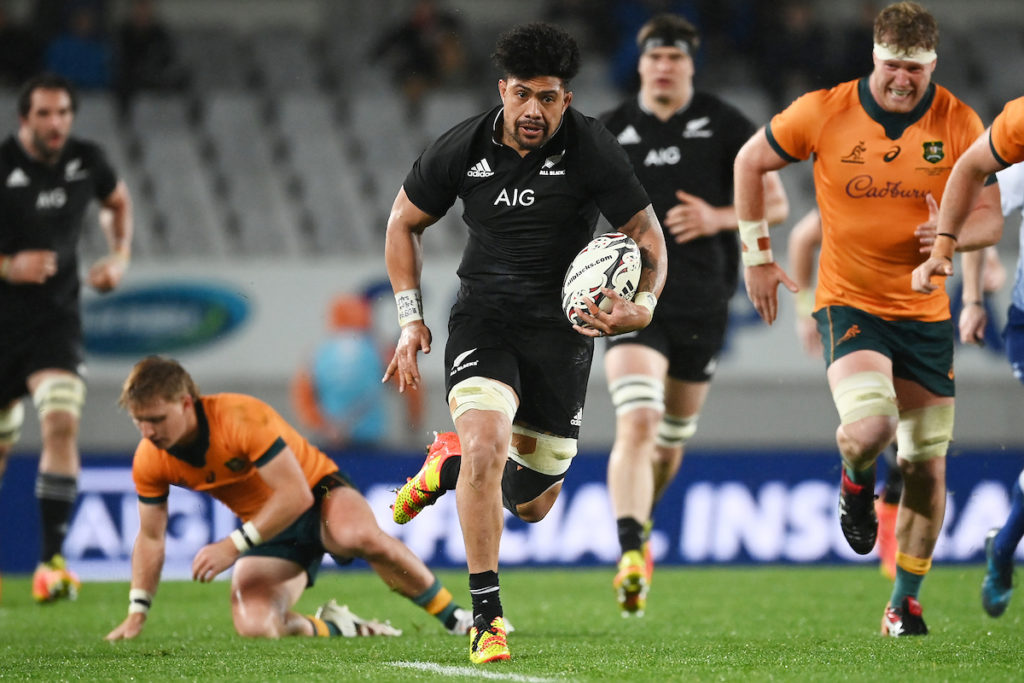A three-month overseas tour was par for the course back in the amateur days. All Blacks would say goodbye to their loved ones, typically coerce a friend or family friend to look after their farm, and then disappear from October to January, playing 20-odd games and a handful of tests.
No one ever thought those days would return once the game became professional. The World Cup is the closest the modern player ever gets to experiencing something similar to their amateur forebearers.
That was until now, because this week the All Blacks have headed to Perth to play Australia on September 5, after which they will travel to Queensland where they will be based for another six weeks, playing Argentina and South Africa twice each.
It will be a tough stretch for the All Blacks – five tests in five weeks and then a week of recovery in Queensland before they, provisionally at this stage, fly to Washington DC to play the USA.
They will play one test there – if border controls allow them to get in and get out – and then fly to the UK to play Wales, before taking on Italy, Ireland and France and coming home to endure two weeks in hard quarantine.

In total, the All Blacks will be away from home for 14 weeks – a scenario which presents unprecedented logistic, emotional and high-performance challenges.
It’s going to be a 10-test tour that will provide the most conclusive evidence as to how good this current All Blacks side are. It will test their depth, their ability to strategise selections, their analysis, their tactical acumen and most of all, their character as they try to cope with the pressure of being on the road for such an inordinate period.
The logistic front is further complicated by the personal situations of several players whose partners are expecting. Sam Whitelock, Aaron Smith and Richie Mo’unga won’t be on the plane to Perth for that reason.
Scott Barrett’s partner is also due while the team are offshore and while New Zealand Rugby support his hope that he will be able to come home during the tour for the birth, there is the massive issue of obtaining a quarantine spot for him.
What’s maybe not fully appreciated outside of New Zealand is that anyone entering the country has to serve a mandatory, two-week hard quarantine in an official facility.
In my previous eight years, we had taken a lot of pride in our preparation and structure. The last 18 months you would almost chuck that out the window.
All Blacks head coach Ian Foster
Demand for these spots far outstrips supply and the Government has refused to be flexible or make exceptions for anyone to jump the queue.
The All Blacks have MIQ spots booked for November 23 so Barrett is thought unlikely to be able to get home before then.
Adding to this already considerable logistic headache is the need for an extended list of players to be double vaccinated. The current Rugby Championship squad have all received two doses but any player with the potential to be called over to Australia or the UK to cover for injuries, also have to be double vaccinated at a time when your average Kiwi under 30 still can’t be jabbed.
“In my previous eight years, we had taken a lot of pride in our preparation and structure. The last 18 months you would almost chuck that out the window,” Foster said.
“High-performance sport and Covid don’t exactly mix in terms of the traditional model, so we’ve had to adapt and change a lot. That’s been a strength.
“We’ve learnt a bit about ourselves through that phase and I think it’s drawn us closer, particularly our leaders and players, because they’ve had to work a lot together on how we change as a team. That’s been a real positive mixture for us.”

The emotional challenge of being away from home for that long and living in each other’s pockets has perhaps been made that little bit easier by the news that the coaching group have finally had their contracts extended.
Foster and his assistants, John Plumtree, Brad Moaar, Greg Feek and Scot McLeod – were all signed on two-year deals in early 2020. New Zealand Rugby was holding off extending those deals – supposedly eager to see how the All Blacks went this year against the Springboks.
That lack of transparency and communication was unsettling the players who made it known to their employer that they didn’t want to head off to Australia without the coaching situation resolved.
The argument was made that while uncertainty about the coaching team’s future had possibly been motivating to begin with this year, it had stopped being so by the time the Bledisloe Cup tests were played in early August.
The smarter plan, given the changed circumstances, argued the players, would be to commit to Foster before heading offshore because certainty would prove to be more motivating and inspiring than uncertainty.
We were working towards being able to bring something to the board through August. Because of the changing dynamic, it made sense to have this done sooner rather than later.
New Zealand Rugby chief executive Mark Robinson
After the All Blacks had beaten the Wallabies 57-23 at Eden Park on August 14 to secure the Bledisloe Cup for a 19th consecutive year, NZR’s board realised they had to fast-track their plans.
“We were working towards being able to bring something to the board through August. Because of the changing dynamic, it made sense to have this done sooner rather than later,” said NZR chief executive Mark Robinson.
The timing felt right with the combination of the uncertainty ahead, combined with what we’ve seen and the feedback from the group. That gave us a good foundation to make the decision and move forward.
“If you wait indefinitely until the end of the year that does develop a range of uncertainties that can potentially manifest in different ways and we didn’t think that was the right approach.
“We’ve been very fortunate to have someone like Ian here in a time like Covid. People will form views on the rugby side and what they see on the park.
“To have someone with that level of composure, calm and caring nature working behind the scenes to help pull together our environment at key times has been really beneficial. That’s probably something the public don’t really appreciate.”

Which leaves the third challenge – that of delivering high-quality performances in 10 tests. What looms is the hardest schedule the All Blacks have faced in the professional age – in circumstances that only accentuate the difficulty.
Five tests in five weeks then a two-week gap before playing another five tests in five weeks is a big ask. Included in there are two tests against the world number one Springboks and bruising encounters against Wales, France and Ireland.
There is no doubt that we will find out just how good these All Blacks are in the next three months. It has been hard, given the wider impact of Covid, to get a good handle on where they really are. They have been a mix of everything in the last 18 months – good, bad, indifferent.
When they have been good, they have been excellent, but when they have been bad, they have been really bad. This year has seen them smooth the performance curve and they are currently on a six-test unbeaten run, suggesting they are a side finding themselves and building towards becoming something special.
But their opposition has been relatively weak so what matters more is the way they have adapted and evolved in the last 12 months.
There were large periods of the second Bledisloe Cup test where the All Blacks played direct, skilled, high tempo, physical rugby that any team in the world – including South Africa – would have found hard to contain.
After the All Blacks lost to Argentina last year, they came back the next week with all the answers they didn’t have in the defeat to win 38-0.
When Fiji caused them problems in Dunedin this year with their work at the breakdown, the All Blacks threw their resource into fixing that the following week in Hamilton. And after playing too wide too early in the first Bledisloe Cup test this year, they focused on being more direct and controlled in the second test.
No one is suggesting we are looking, right now, at one of the great All Blacks sides, but on the evidence to date, there is reason to believe they have the smarts and awareness to keep adapting as they need to and that, week by week, a young, inexperienced squad is learning and storing vital information and using it effectively.
There were large periods of the second Bledisloe Cup test where the All Blacks played direct, skilled, high tempo, physical rugby that any team in the world – including South Africa – would have found hard to contain.
Foster’s All Blacks have genuine ability, a clinical edge and skill level that makes them dangerous. What they have lacked is the ability to consistently deliver at or close to the peak of their ability, but everyone can see they are producing more sustained bursts and are better at breaking themselves out of trouble when they find themselves under pressure.

What’s also been missed is that the All Blacks have played this year without a handful of key forwards such as Joe Moody, Ofa Tuungafasi, Dane Coles and Sam Cane. When those four return, the All Blacks will suddenly have incredible depth – something that will truly matter when they come to the tougher games this year.
There are others not currently available either – most notably Jack Goodhue and Caleb Clarke – and no one believes that Beauden Barrett has returned to his best yet since coming back from Japan.
What’s undeniable is that there is obvious growth potential within the All Blacks.
“I feel like there’s a group building here,” says Foster. “It’s clear to us it’s not the finished product yet but that’s okay. The leadership structure and culture within the team is strong.
“I can’t wait to test ourselves against a variety of opposition, especially the Springboks and then hopefully the Northern Hemisphere teams. That’s the bit that’s missing for us at the moment but we can only play the opposition we get.”


Comments
Join free and tell us what you really think!
Sign up for free